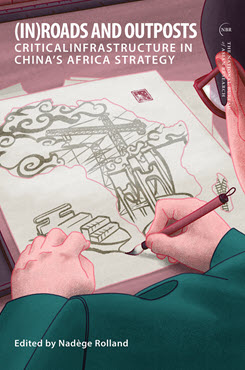Essay from NBR Special Report no. 98
China Electrifies Africa
This essay examines China’s role in developing power-generation capacity in Africa over the past twenty years by detailing the different ways Chinese entities are involved in power projects, exploring why Chinese companies have developed so many power-generation facilities, assessing some of the impacts on African countries, and discussing implications for the U.S.
EXECUTIVE SUMMARY
MAIN ARGUMENT
China’s power-construction companies and financial institutions are primarily supporting the development of new power-generation facilities in Africa because of the business opportunities available on a continent that needs more generation capacity to support economic growth. Africa, with its large and mostly untapped hydropower resources, is especially appealing to China’s dam builders, which face limited prospects to expand at home. Contracts to build hydropower projects can also drive exports of Chinese generation equipment and industrial standards. Chinese-supported power plants not only are an important source of new generation capacity but also have contributed to a positive shift in perceptions of Africa among external investors and development financiers. In addition, the construction of these generation facilities reflects both a “push” from China and a “pull” from Africa. Numerous African governments have turned to China to finance projects that the World Bank and other donors refused to finance. Moreover, multiple governments have championed projects for various political and economic reasons, with costs borne and benefits accrued by different population segments.
POLICY IMPLICATIONS
- Africa’s power-generation market is large enough for U.S., Chinese, and other companies and financiers to participate.
- Increased competition between firms domiciled in the U.S., China, and other countries is likely to benefit African nations by providing them with an opportunity to shop around for the best deal.
- If the U.S. government provides more funding for Power Africa, an interagency initiative launched by President Barack Obama to increase electricity supply and access, then the initiative would be better positioned to help increase Africa’s generation capacity and connect homes and businesses to electricity.
Erica Downs is a Senior Research Scholar at the Center on Global Energy Policy at Columbia University SIPA, focusing on Chinese energy markets and geopolitics.
NOTE: The author would like to thank Philippe Benoit, Deborah Brautigam, Harry Verhoeven, Jianxing Wan, and individuals who wish to remain anonymous for helpful comments and conversations and Jiashi Yang for research assistance.



 Into Africa: China's Emerging Strategy
Into Africa: China's Emerging Strategy